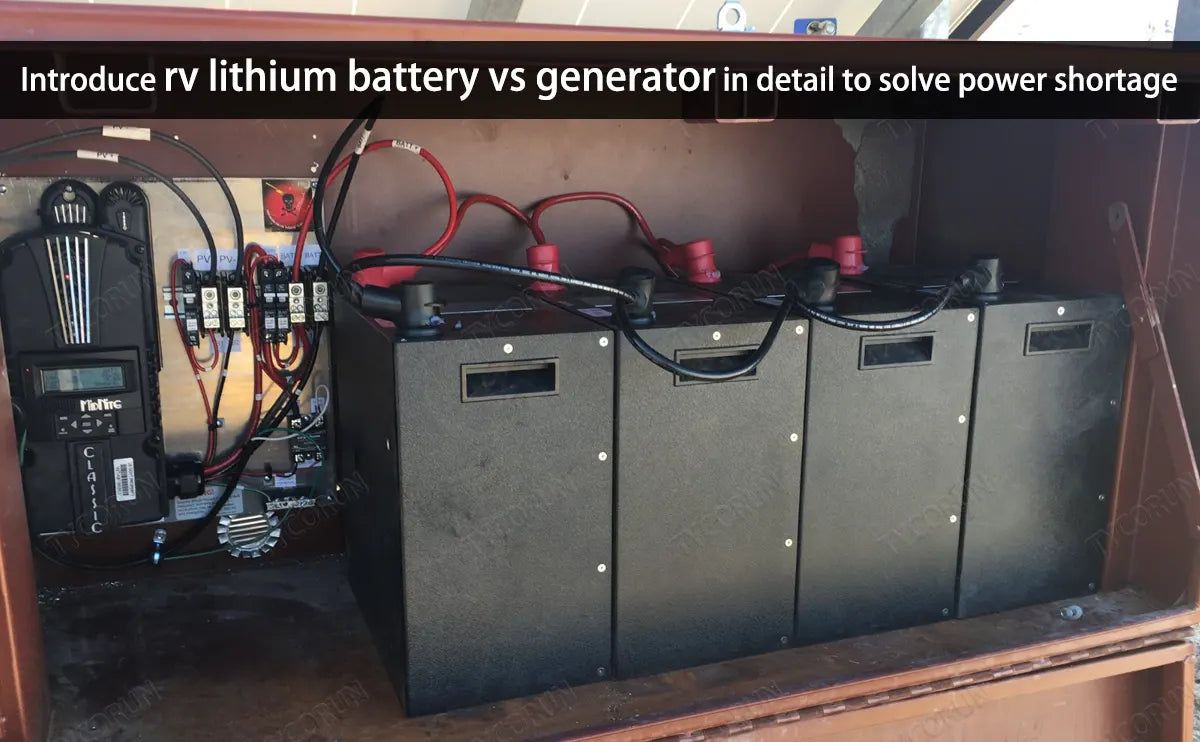
Main content:
1. The common composition of rv electrical system
The electricity consumption is generally divided into three types. One is the battery. In order to ensure safety, lithium battery is generally used. One is the power supply generated after the engine is started. The rest is connected directly to external electricity.
In addition to these three, some are powered by installing a solar cell system on the roof and come with a small generator to supply power. When used outdoors, we can feel the problem of fast power consumption, so this article will explain the rv lithium battery vs generator. Before explaining the rv lithium battery vs generator, we can first know the composition of the power system on the rv.
● External power supply
It can be used indefinitely, and you can basically park at the rv campsite at night, etc., and you can pick up your own car. Generally, well-equipped campsites will provide standard water and electricity. The rv can be charged via the charging cable carried by the car.
● Charging on the go
The rv chassis is equipped with its own starter, and at the same time, in the car, it is also a generator. It can supply power to the electrical appliances in the car, and at the same time store excess power in the rv battery, which can supplement the battery life by about 1 kWh in an hour.
● Lithium battery for rvs
If you use a lithium battery, you can use it for about 4-8 hours (excluding the use of high-power appliances such as air conditioners and induction cookers). In the case of not connecting an external power supply, as long as the high-power appliances are not used for a long time.
The power system can support two to three days of use. The basic difference between rv lithium battery vs generator is that batteries can’t generate electricity.
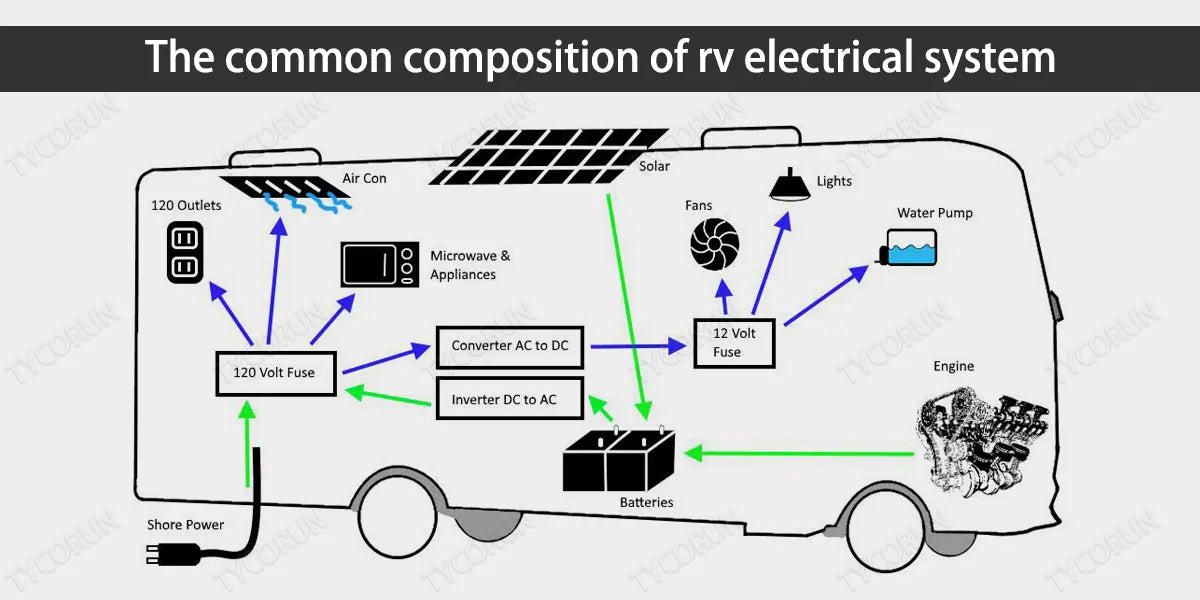
● Generator charging
Outdoor generators convert fossil energy such as gasoline into mechanical energy to drive generators to generate electricity. The power ranges from several hundred watts to tens of thousands of watts, and it is widely used.
Considering the size, weight, noise and other factors, it is generally a small portable generator suitable for rvs. The power is about 2000~3000W, and under full load, 2-3 degrees of electricity are supplemented in one hour.
2. Charging and use of rv lithium battery
Rv batteries store electrical energy, convert voltage through inverters according to user needs, and supply power to various rv appliances. Here you can see the difference between rv lithium battery vs generator, and here are a variety of rv charging recommendations:
- Solar power generation, rv driving power generation, and external charging mains power combined with each other have the best charging effect.
- Additional fuel-fired generators are added to cope with larger or emergency electricity needs.
- According to the itinerary, use the mains power to charge the rv as much as possible, which can minimize the cost of electricity.
- It can not only meet the daily electricity consumption, but also store excess electricity and effectively maintain the lithium battery.
- Make full use of places with charging conditions, such as high-speed service areas and rv campsites on the way out, and replenish electricity with mains.
- Choose high energy density lithium iron phosphate batteries, increase on-board energy storage, rationalize power use, and avoid power outages.
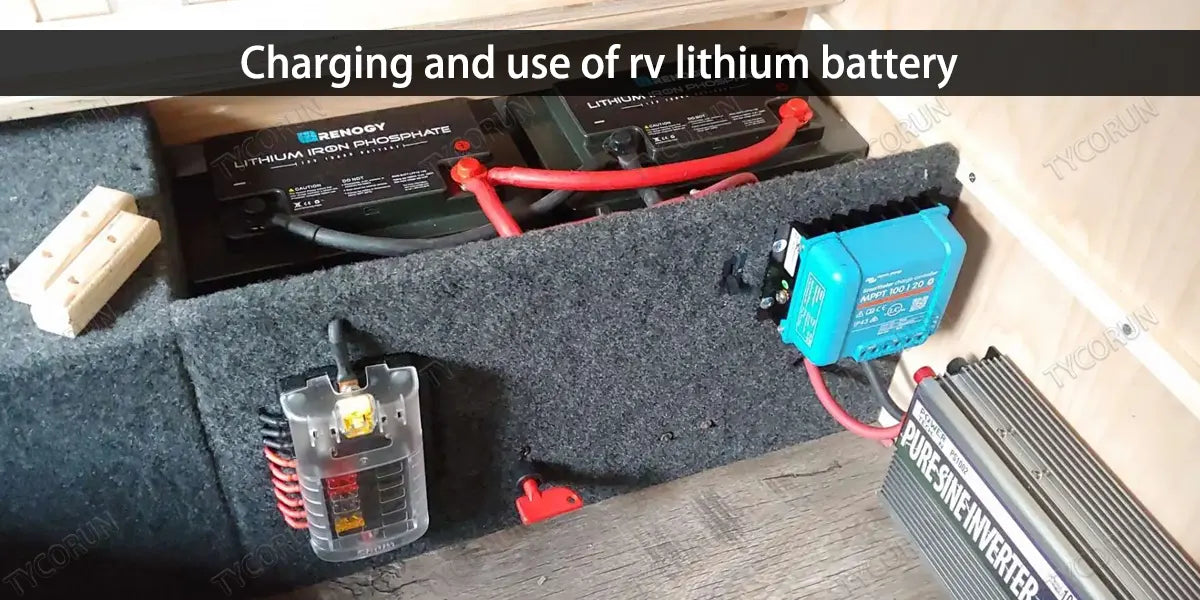
Despite this, many people still encounter a lack of power while driving, or everyone wants to make the power more sufficient, so you can have a deeper understanding of rv lithium battery vs generator to determine whether you need to increase the battery capacity and choose a better generator.
3. Whether rv lithium battery vs generator is suitable for my rv
Is it better, more energy-saving and safer for rvs to install large-capacity lithium batteries and on-board generators? The choice of large-capacity lithium batteries and on-board generators should depend on your specific needs and usage. You can refer to the advantages and disadvantages of their rv lithium battery vs generator to make your own choice and judgment.
● Lithium battery for rvs
- Advantages of large-capacity lithium batteries:
More energy efficient: Lithium batteries can store solar energy or electricity generated by the engine, which means that the vehicle can store more electricity and ease the anxiety of electricity consumption.
More safety: Large-capacity lithium batteries are generally highly safe because they can withstand high temperatures and pressures and have protection circuits to release electrical energy.
More environmentally friendly: The use of lithium batteries can reduce the pollutant emissions produced by the vehicle, making it more environmentally friendly.
- Disadvantages of large-capacity lithium batteries
More expensive: The cost of lithium batteries is relatively high, especially for large-capacity lithium batteries. Therefore, their purchase and installation costs may be higher than on-board generators.
More complex: High-capacity lithium batteries require complex control systems and charging systems to manage electrical energy, so more maintenance and management are required.
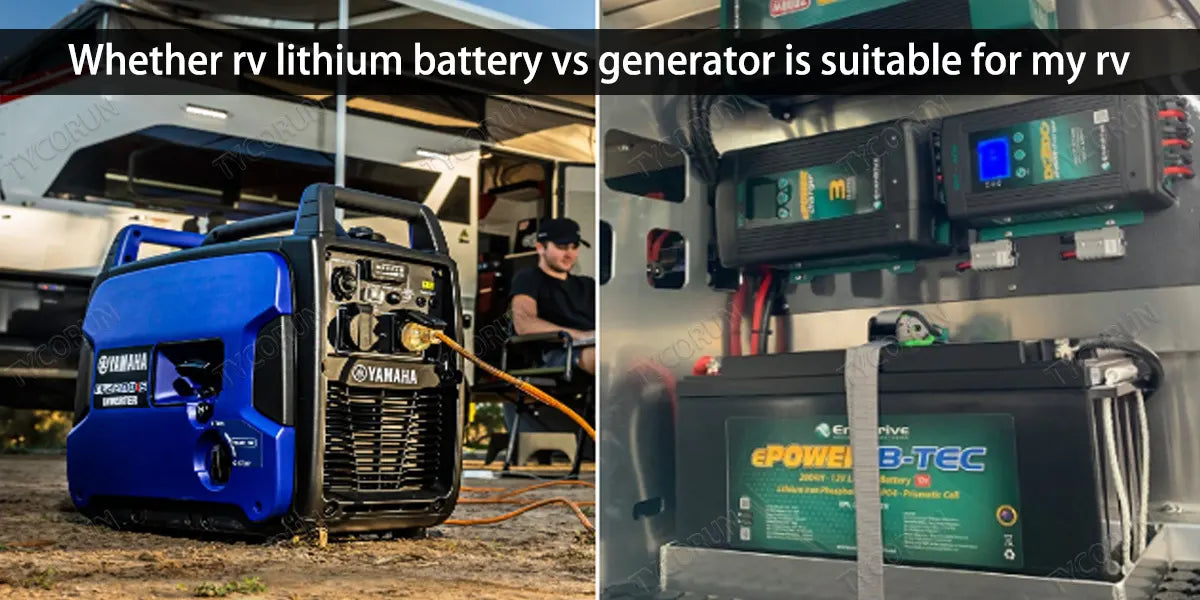
● On-board generator
- Advantages of on-board generators
Cheaper: On-board generators are more affordable than high-capacity lithium batteries, especially for low-end or mid-range rvs.
More flexible: On-board generators can provide power without charging infrastructure and can be used anywhere at any time.
More reliable: On-board generators are often highly reliable and can provide continuous power.
- Disadvantages of on-board generators
More energy intensive: On-board generators consume fuel to generate electricity, which can increase the rv's fuel consumption.
Noise: On-board generators are usually relatively noisy, which can affect comfort.
Now there are two mainstream solutions to solve the problem of electricity consumption, one is to install lithium batteries, and the other is to rely on generators for power supply. Ultimately, it's the rv lithium battery vs generator problem. So if you want to choose a generator, what should you choose?
4. How to choose the right generator
At present, according to the different fuels, there are three types of generators on the market: gasoline version, propane version and diesel version, of which the other two generators can be freely selected except for diesel generators that can only be used in diesel rvs. The question arises as to which generator is best.

First of all, there is not much difference in the purchase price of the two generators, and in general, the larger generators will be cheaper to use gasoline than propane. Smaller generators use less propane gas than gasoline. When it comes to operating costs, it's different. For rv lithium battery vs generator, that's when we can make a choice.
- Small size and light weight
- Low noise
- Stable power generation
- Low fuel consumption
- Reliable equipment
5. Safety issues on generator use
Since the rv lithium battery vs generator, the generator is not as safe as the lithium battery as a rv electrical system, let's take a look at the precautions when using it.
- Before using the generator, be sure to read the user manual and generator instructions for use.
- And carefully follow all instructions and warnings in order to start and operate the generator safely.
- Do not overload the generator.
- Do not use appliances and equipment that exceed the rated output of the generator.
- Portable generators should never run generators indoors or in partially enclosed areas such as garages.
- Use only outdoors, away from windows, doors, vents, and places with adequate ventilation.
- Place them on a horizontal surface and do not expose them to moisture, dirt, dust or corrosive vapors that affect life.
- When using a gasoline generator, do not overfill the tank to leave room for refueling.
- Do not add fuel when the generator equipment is running or at high temperatures, and wait until the generator is completely cooled before adding fuel.
6. Maintenance of a portable generator
Before using the generator, check whether the gasoline in the tank is sufficient, and the oil needs to be replaced after 50 hours of cumulative use of the new machine.
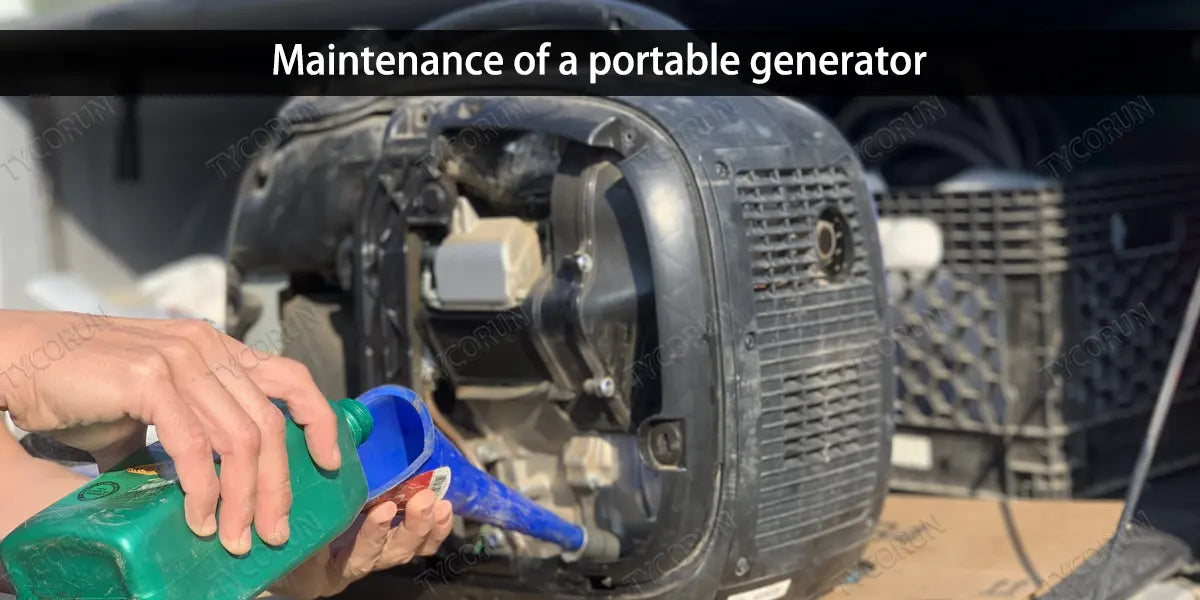
If the machine is used frequently, it is recommended to change the oil every 1-3 months, if the machine is not used frequently, occasionally, it is recommended to change the oil once every six months. The place where portable gasoline generators need to be maintained is the maintenance of the fuel tank.
Keep the fuel tank of the portable gasoline generator clean to avoid debris appearing in the tank and causing the oil pipe to be blocked. This is also an effective way to avoid the failure of portable gasoline generators. One of the laws.
7. Conclusion
In summary, it is necessary to choose rv lithium battery vs generator based on a comprehensive consideration of individual needs and usage. If you need to stop for a long time and need to deal with a power outage, then a large-capacity lithium battery may be more suitable.
If you often need to drive outdoors and need to use electricity at all times, an on-board generator may be more suitable. You can also choose at the same time according to the actual car situation, and the one that suits you is the best. We wrote about rv lithium battery vs generator to provide advice to help you make better decisions.
Related articles: top 10 lithium battery companies in the world, solar panels for rv, battery charge